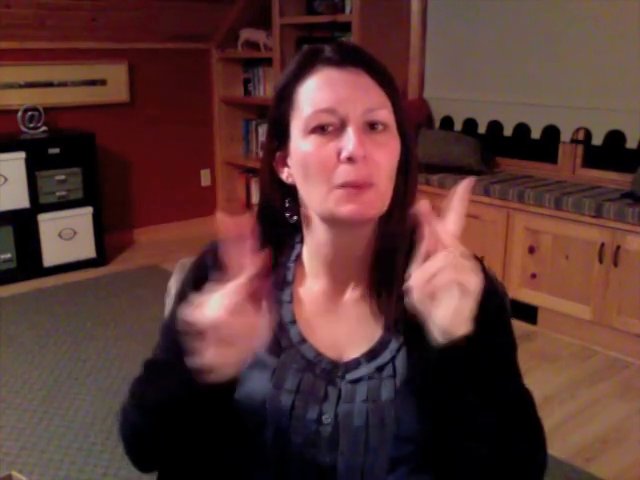This article originally appeared at i711.com.
Recently, a friend attempted suicide. She changed her mind in the process, and decided to call local suicide resources to try and get some help. Nine of the ten places hung up immediately when they heard that it was a relay call. The tenth one said, “We don’t provide interpreters,” and hung up before my friend even said a word. Eventually, she found a friend to confide in, but still needs counseling services that are American Sign Language (ASL) accessible.
Another friend had suicidal thoughts several years ago. When I drove him to the hospital at his request, he was sent home after an overnight stay because they didn’t have the appropriate services. The interpreters sent for this assignment all knew my friend through work. My friend was embarrassed and frustrated, and to date, has never gotten the counseling and help he wants.
There are countless Deaf people who want or need counseling services, but are unable to receive them due to different factors. One such factor is the shortage of interpreters due to video relay services and high demand for interpreters. I know a man who has had his appointments rescheduled repeatedly due to the unavailability of interpreters. Another factor is the discomfort of sharing personal information in the presence of interpreters, especially if you know many of the interpreters in your area. It doesn’t matter if interpreters are supposed to keep everything confidential; it’s still uncomfortable, period, especially if you’re sharing information about abuse or molestation.
In so many parts of the country – including major cities – there are very few or no counseling services or mental health services readily available for ASL-using Deaf people. The only alternatives are to look – usually with no luck – for counselors willing to provide interpreters (and who wants to deal with threatening mental health agencies with lawsuits if they don’t provide accommodations?). Then it’s even more difficult to try and find counselors who are familiar enough with Deaf culture and ASL to understand the intricate details of the Deaf community, where everybody knows everybody and nothing stays a secret very long.
What are solutions? There are so few currently available. I personally think our Deaf community is at a crisis point when it comes to mental health services. The National Association of the Deaf has a position paper and fact sheet in regards to mental health, and while these documents are beneficial, they’re not enough. We need to come up with immediate, successful solutions — and fast. This crisis is preventable, and it’s a tragedy to think about how many Deaf people have committed suicide just because services weren’t available or accessible to them.
One possible alternative is to utilize online counseling services. Of course, this isn’t feasible for people who don’t feel comfortable using written English — but there are legit, certified counselors who provide services via e-mail. This has been a wonderful alternative for some people who have a good mastery of the language, and don’t want to worry about whether they know the therapist or the interpreter. The process is quite simple: the client and the therapist e-mail each other on a regular basis or even talk via AIM. It can be a bit slower than face-to-face therapy, but is quite effective for long-term counseling.
Another alternative is something that hasn’t been utilized yet on a widespread basis: the videophone. There are ASL-fluent counselors who could use videophones for counseling sessions when appropriate. Using videophones would remove the obstacle of knowing the interpreters or therapist, and counseling sessions can be done from the comforts of the home and/or office. But the best benefit of this, I think, would be the ability to provide services anywhere. For instance, a person who lives in rural Vermont could access mental health services in, say, Washington, D.C. or even Las Vegas. It’d be cost- effective, time-effective, and a valued service filling a gap.
Meanwhile, until better alternatives are developed, people like my friends will continue wrestling with their emotional and mental needs, and feeling desolate and dismal about recovering from their emotional/mental pain. The Deaf community cannot let this go on anymore. We need to have mental health services immediately available and accessible for Deaf people in ASL with no rescheduling, no delay, and no cultural barriers.
After all, this is a life or death matter.
Copyrighted material. This article can not be copied, reproduced, or redistributed without the written consent of the author.

